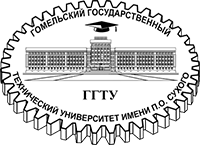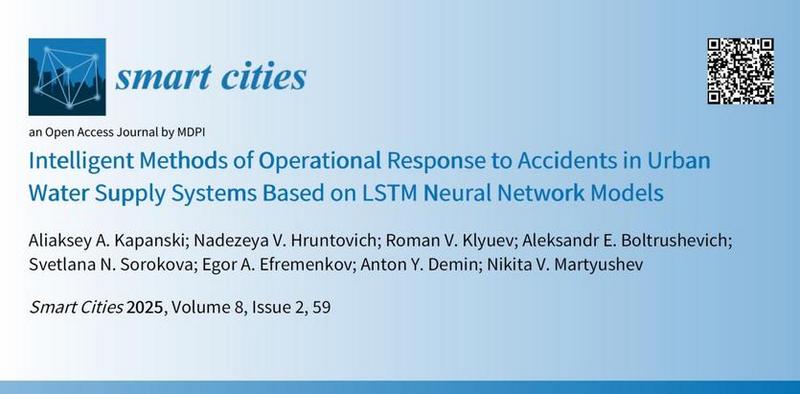Research Article by GSTU Scientists Published in the International Journal Smart Cities (Q1, MDPI)
Leading scientists from Belarus and Russia have once again presented a joint research work dedicated to intelligent methods of operational response to emergency situations in urban water supply systems. The results of the study were published in the journal Smart Cities (Q1, MDPI, Switzerland) in April 2025. The authors of the article include representatives from Sukhoi State Technical University of Gomel, Moscow Polytechnic University, and Tomsk Polytechnic University. The initiators of the research and authors of the main scientific concept are Belarusian representatives: Associate Professor of the Department of "Power Supply," A.A. Kapansky, and Professor N.V. Gruntovich.
The publication, titled "Intelligent Methods of Operational Response to Accidents in Urban Water Supply Systems Based on LSTM Neural Network Models," is dedicated to the application of modern neural network technologies for forecasting and preventing emergency situations in water supply networks. The study presents an approach based on the use of LSTM (Long Short-Term Memory) models, which allow real-time prediction of system performance parameters and timely response to potential deviations. Under the leadership of Alexey Alexandrovich Kapansky, the key goals of the research were formulated, the architecture of the model was justified, and directions for the application of neural network methods in tasks of operational response to deviations in water supply systems were determined. Russian participants in the project ensured the implementation of tasks related to processing large data arrays, technical adaptation of models, and analysis of the consistency of predictions with the parameters of real urban systems.
The study serves as an example of effective scientific cooperation between researchers from Belarus and the Russian Federation in the field of digitalization of urban engineering infrastructure. The joint work allowed the pooling of expert knowledge, scientific resources, and applied experience, laying the foundation for further collaboration and development of scientific projects.



